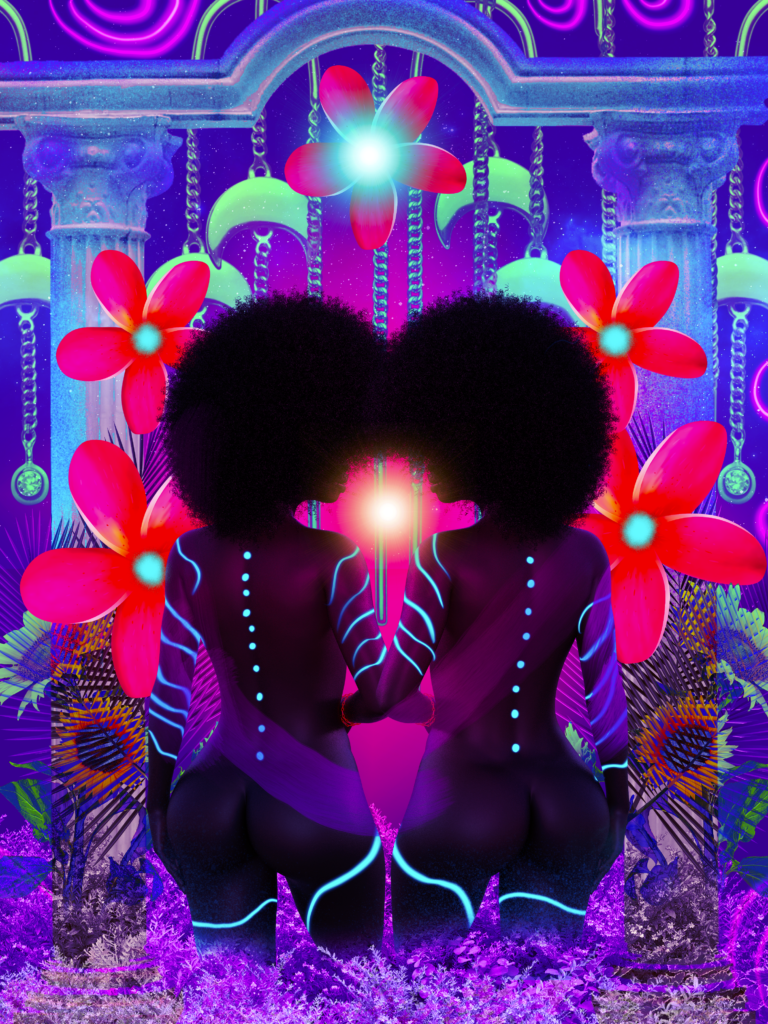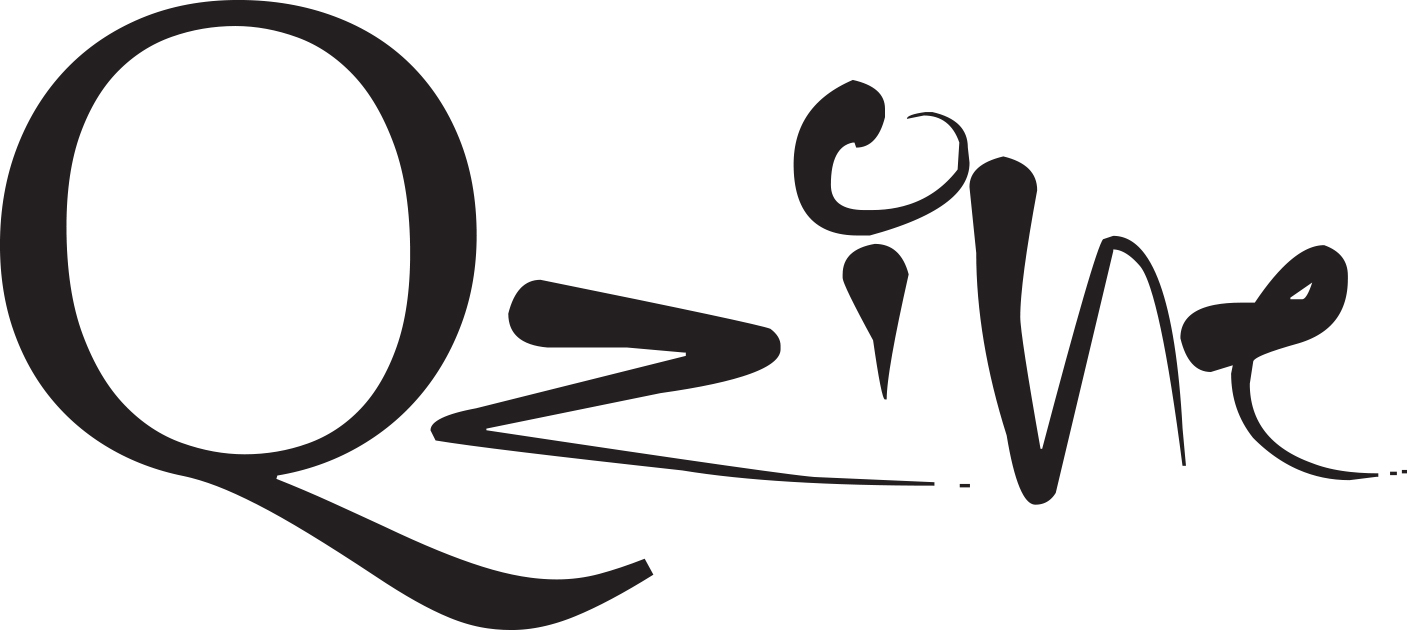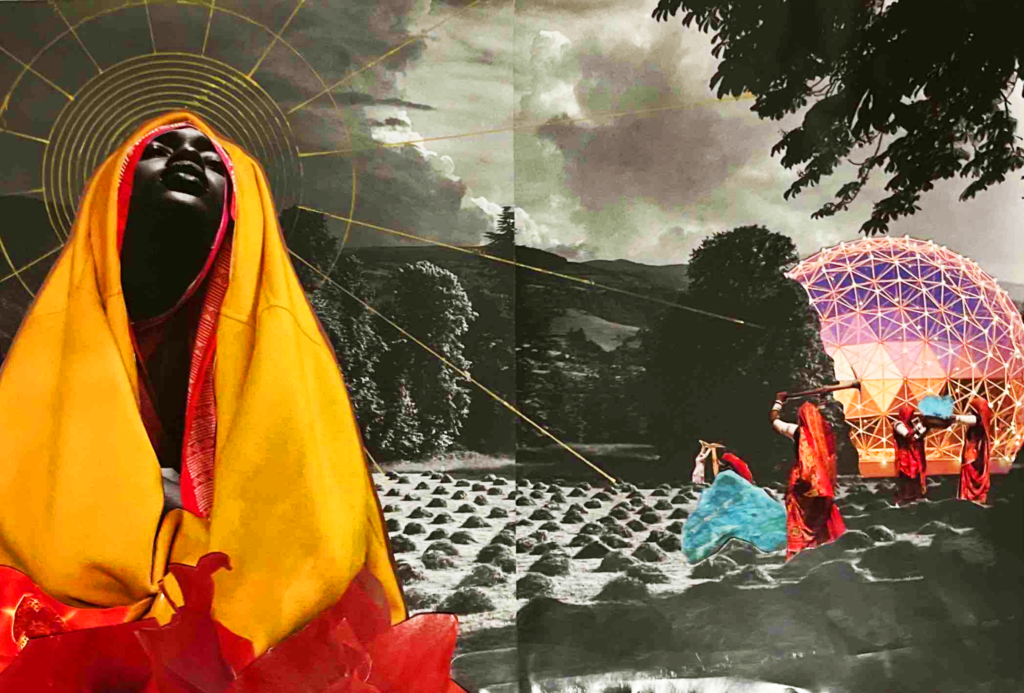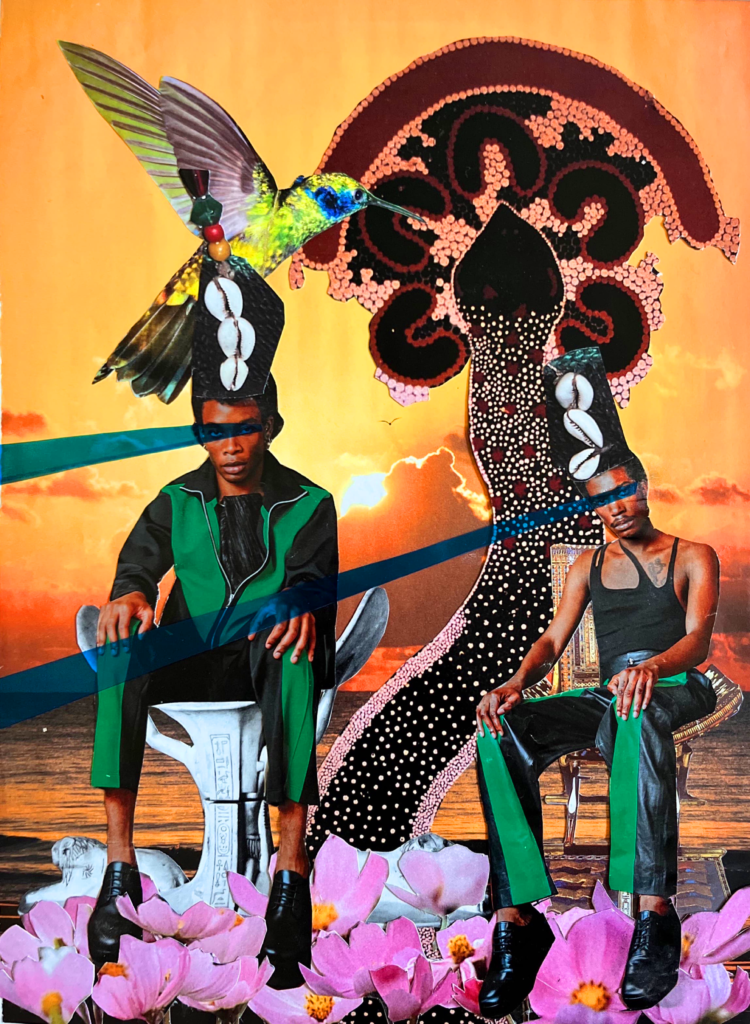Twin Souls
By Lynn Aurélie Attemene
Illustration by Creative Powerr

“The more I listened and talked to her, the closer and more connected I felt to her.”
I had met her several times. Our interactions were brief and mundane. She was an ordinary person that I could have met anywhere but would probably never have paid attention to.
A “hello” had always been enough.
One beautiful rainy and windy morning, I was in a mood to open up to the world, read articles, watch tutorials, and laugh at funny videos. The weather was perfect for dreaming and lazing around. Cup of tea in one hand, I moved a chair to the balcony and settled down, trying to immortalize the social scenes before me.
Facebook, YouTube, Twitter, Instagram, Tiktok. That’s when I came across the twins. I became captivated by their resemblance and synchronicity. At that moment, without really knowing why, I wished that I had a twin sister, a sister, or at least an older sister with whom I could have had a similar relationship. It was a silent wish, a wish that came out of nowhere. I already had a family and I loved my siblings, but I wondered how strong our relationship was; I wondered if blood was enough to create a synchronicity as perfect as what I had just watched on the video.
What does it take to build such a relationship with someone?
I needed to be able to see myself in another person, to find parts of my story and my experiences in that person, to share similar beliefs. I wanted more than a twin. I needed someone who had a soul like mine.
This got me thinking and I realized that I didn’t feel connected to the people I called family since I was born. Although we shared the same blood, the same parents, we were so different. This realization raised many questions. Being born from the same womb was not enough. I became convinced that our first mission on earth was to find our true family, the family that we would share our values, principles and aspirations with.
When I woke up a few hours later, it was still raining. Yes, these questions had put me in a deep sleep. The rain was falling heavily and there was nothing one could do except wait and enjoy the sound it made as it fell on our roofs and watered our lands.
Suddenly, as if she had read my mind, I received a message. She had contacted me on Messenger. She wanted me to contribute to her project.
– “Hey, I know you! I see you every now and then”, I answered.
– “We also follow each other on social media. You often like my posts, but you never say much.
– “Nothing to say.”
– “That’s a shame! So, about that project?”
– “What about it? What is it about?”
– “I want to start a lesbian book club and I thought we could work together”
– “I’m flattered, but no thanks.”
She called me immediately after that last message and without knowing why, I picked up. It was the most beautiful and sincere conversation I had ever had. At no time was I afraid of the unknown. The universe had guided me to this stranger, and from then on, our simple “hellos” turned into long and interesting conversations. We were truly interested in each other.
*********************
“The more we talk, the more I feel connected to you.”
This project became our project. You opened your world to me and I found people like us, like you and I, people who were just as vulnerable as we were. The universe had chosen us to be twin souls. We were twin souls.
I had wished for a sister to whom I could open up to, to whom I could talk about myself; this self that my “family”, the one I was born into, did not know.
I had wished for a sister with whom I could let my tears flow; these tears that my “family”, the one I was born into, would never see.
I had wished for a sister with whom I could share my experiences; those experiences that my “family”, the one I was born into, will never know about.
I had wished for a sister with whom to fight my battles; those battles that my “family”, the one I was born into, would never fight with me.
Today, I cry and I laugh with you.
Today, with you, my dreams, our dreams, come true.
I can see and feel your fears, just as you do mine. And from this shared fear, we find solace.
Knowing that you loathe the things I loathe comforts me.
With you, I am happily lesbian and imperfect. We have similar stories and this makes us feel safe.
Together, we face highs and lows, and come back stronger and even more motivated.
Gesus, a Cameroonian friend, once told me: “Family is not only blood, but it’s also bonds, experiences, similarities, knowledge, patience, tolerance and lots of love.”
I found a family in you and you led me to other people who’ve become family. We all need a family that listens and understands us.
I made a wish unconsciously and it came true. I had a need, and that rain that had lasted a whole day had answered it. That rain had come full of magic and positivity. I had felt it. I connected with it and in turn, it had connected us with each other.
“Would you like me to be your big sister?”
“I am your little sister, the one who loves you, who will always love you regardless of your flaws and imperfections. Our family may have emerged from nowhere, but it will become the most beautiful family. Much more than blood, resilience will keep us together.”




